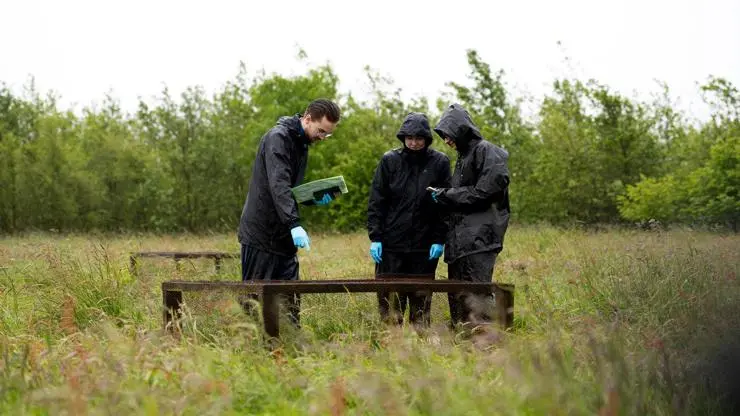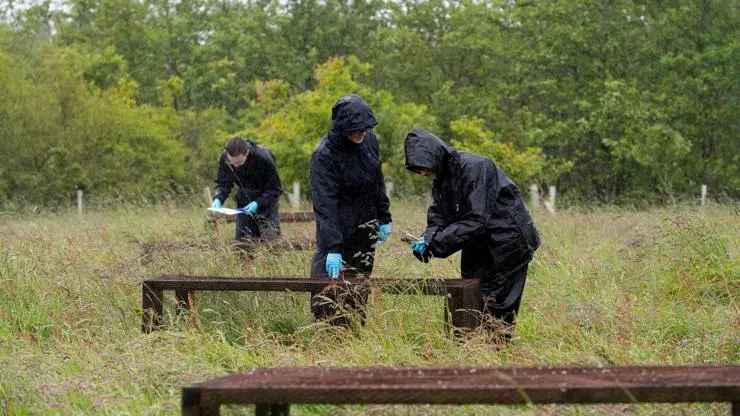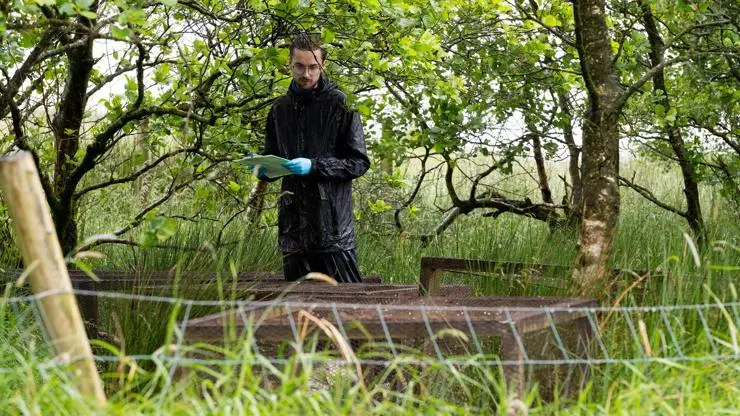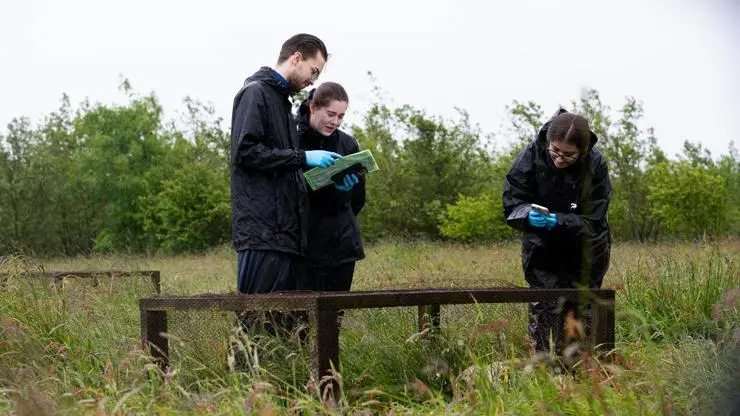In 2009, the Taphonomic Research in Anthropology: Centre for Experimental Studies (TRACES) was established in consultation with local authorities, the Environment Agency and Animal Health, an executive agency of the Department for Environment, Food and Rural Affairs (DEFRA).
TRACES was the first facility in the UK dedicated to the experimental study of forensic taphonomy using animal models. It comprises 13 acres of land and is one of the largest in the UK.
We conduct basic and applied research in forensic anthropology, entomology, decomposition processes and forensic genetics and proteomics.
We currently conducts experiments in all aspects of decomposition, trauma, forensic entomology, and forensic DNA using animal models. Our staff are interested in conducting parallel experiments with animal and human taphonomy centres elsewhere.
Research space on the TRACES site is available for hire by researchers who wish to conduct taphonomic studies but lack their own facilities, or those who wish to carry out comparative studies alongside their own. In addition, certain equipment can be hired for the set up or duration of the project, as can the expertise of the TRACES staff.
The TRACES team
Services
Outreach
If you represent a school, college, community interest group or other organisation, and are interested in our research, we would be happy to give outreach lectures or tailored workshops to suit your needs.
Examples of the outreach lectures and workshops we give:
Hear from our students
Our TRACES facility provides a great opportunity for current students to learn more about taphonomy and decomposition by taking on a placement with us. Read Forensic Science and Criminal Investigation student Faye’s experience assisting the Masters students' research projects.Publications and outputs
Courses and postgraduate study
The School of Law and Policing offers a number of undergraduate degree programmes, taught and research-based postgraduate courses that use TRACES.
- BSc (Hons) Forensic Science
- BSc (Hons) Forensic Science and Criminal Investigation
- PhD Forensic Taphonomy
If you need any help applying for a course, please view our handy application guide.
You don’t have to be a scientist to be interested in TRACES. We are also open to working with artists, photographers, poets and more. If you're interested, please contact Professor Anna Williams by email.
Contact us
For further information about TRACES, short courses, research, hiring of our facility or any other enquiry, please contact:






